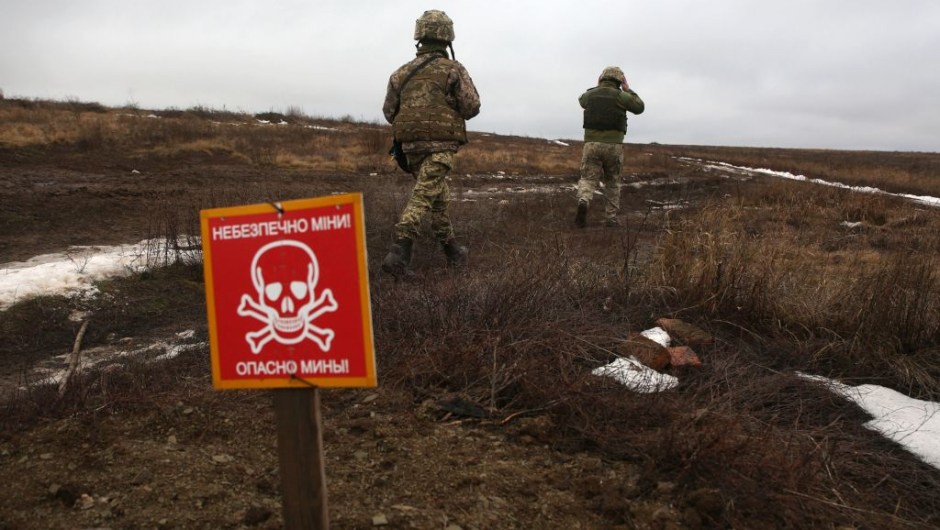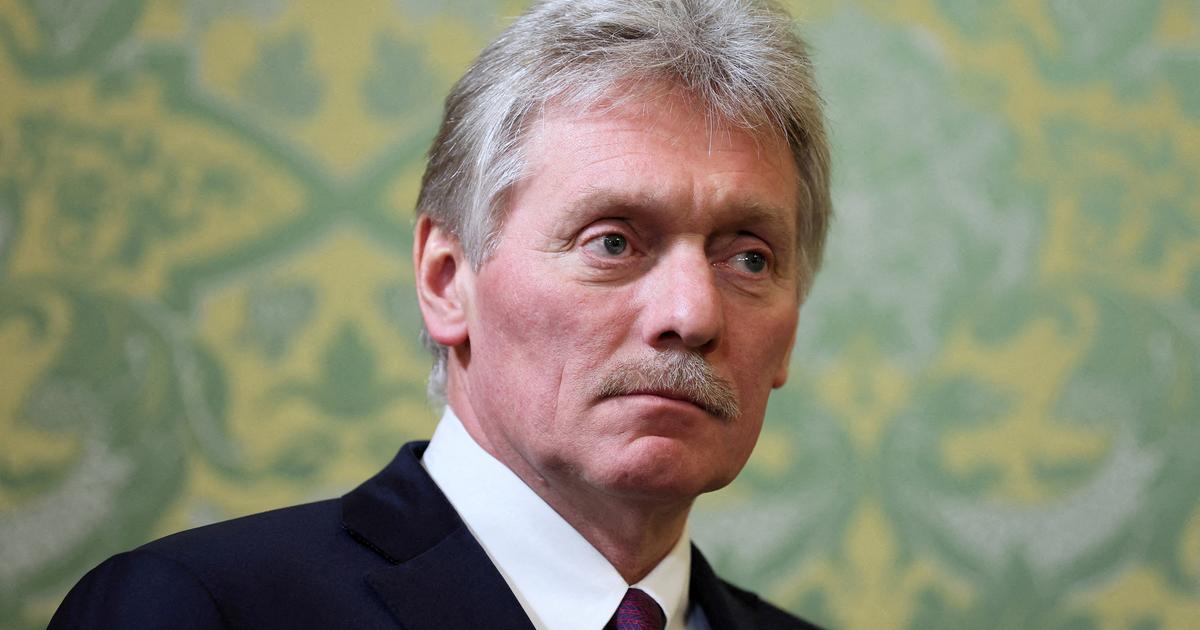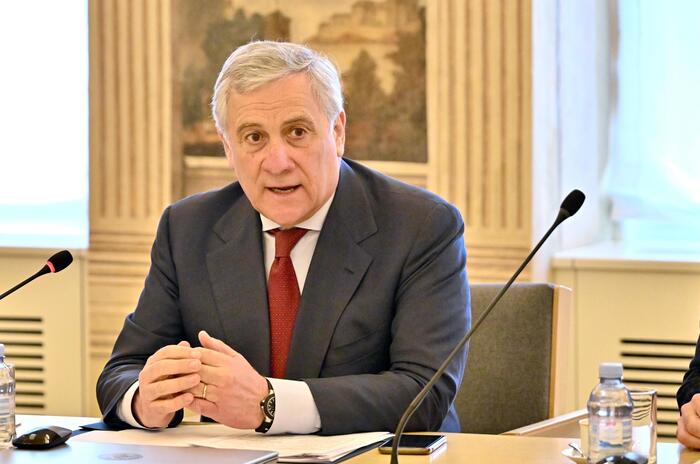A soldier of the Military Forces of Ukraine passes a metal plaque that reads "Caution mines" in front of battle with Russian-backed separatists near the village of Luganske in the Donetsk region on January 11, 2022. - Ukraine said on January 11, 2022 that it appreciates the "efforts" of the West and Russia to ease tensions over Ukraine after a week of high-stakes diplomacy that began in Geneva. (Photo by Anatolii STEPANOV / AFP) (Photo by ANATOLII STEPANOV / AFP via Getty Images)
Editor's Note:
Carlos Alberto Montaner is a writer, journalist, and CNN contributor.
His columns are published in dozens of newspapers in Spain, the United States and Latin America.
Montaner is also vice president of the Liberal International.
The opinions expressed here are solely his.
(CNN Spanish) -
You should not go to war for Ukraine.
Point.
Let's see the argument.
In 1994, Boris Yeltsin, President of Russia;
Bill Clinton, President of the United States;
and Leonid Kravchuk, president of Ukraine, signed in Moscow a pact to denuclearize Ukraine and Yeltsin said they would participate in "The Partnership for Peace" sponsored by NATO.
That spirit, then present, was extinguished.
It was a time when Russia was seriously considering joining NATO and the European Union.
Why?
At the head of the Russian Foreign Ministry was Andrei Kozyrev, a career diplomat who, to some extent, shared the US vision, and thought that Russian interests could be safe within what was called the Pax Americana at that time. .
Today, and for some time, Kozyrev lives in Coral Gables, in the state of Florida.
Russia and NATO talk about the crisis in Ukraine: "It was not an easy discussion," says the organization's secretary
Vladimir Putin was the last Russian politician to entertain the idea of joining NATO and the European Union. That happened at the beginning of his term, in 2001, according to the version of Putin's namesake, Vladimir Pozner, expressed at a conference at Yale and picked up on YouTube. As it is very persuasive, it is worth seeing, although the ambivalence of the speaker must be taken into account in the face of the possibility that Putin, finally a
Kagebista
, will prohibit him from leaving the country for a good number of years. It happened to Pozner before.
As I see it, Russia did not enter the EU because of its demographic weight, because of its thousands of nuclear warheads and because of its size. What happens to the United States: it is a civilization rather than a country, in which its inhabitants have no other interest than to feed themselves with information and culture. Especially after the Second World War. That might be interesting to run the EU or NATO, but it could hardly be Russia getting used to a subordinate position or the US to bicephaly.
Ultimately, that magical moment of joining the EU or NATO was lost, I don't know if forever, but it was lost. At that time, the late 90s and early 2000s, I frequently visited the Kremlin to convey to the leaders my particular vision of Cuban affairs and some conversations I had with Kosyrev - I had already met Yeltsin - and I can attest of the closeness of Russian diplomacy to the West, at least in the first Yeltsin era.
If we correctly interpret former Secretary of State Henry Kissinger in "Diplomacy" and University of Chicago professor John Mearsheimer in "Why is Ukraine the West's Fault?" ("Why is the West to blame in Ukraine?"), The West should not dispute Russia's presence in Ukraine, much less be willing to go to war over it. Mearsheimer and Kissinger consider that the United States and the European Union have part of the responsibility for Russia's intervention in Ukraine in 2014, since one of Putin's conditions to join NATO was that several neighboring countries should not continue to join as members, of his "backyard". According to the authors, the support of NATO and the EU to these nations and to the pro-democracy movements antagonized Putin and would have led him to these actions.
Russia is vigilant and with 100,000 soldiers on the border.
Why?
Because there are big differences between eastern and western Ukraine.
The east is Russophile.
This is the language that is spoken in that area of the country.
The west, where Ukrainian is spoken, is next to the European Union and NATO.
Are the two attitudes irreconcilable?
No. When surveyed together, the inhabitants mostly prefer to stay within the borders of Ukraine itself, but they are victims of nationalism, that ferocious animal, as soon as they are asked separately.
I remember a meeting of the Liberal International where they asked me to sit next to Vladimir Zhirinovsky to try to find out his intentions. At that time, he had been elected leader of the "Liberal and Democratic Party of Russia", which described itself as an opposition and reformist party.
It was neither liberal nor democratic.
The party was far-right.
A ritual question about the general situation of the political parties in Russia was enough for Zhirinovsky to unleash an attack on the Jews.
He was a nationalist with anti-Semitic expressions: "They (the Jews) dominate everything," he told me, forgetting that half of the Jews had gone to Israel, taking advantage of the facilities that that country had granted them.
In the 1980s and 1990s, large numbers of Soviet Jews emigrated from their country and arrived in Israel, taking advantage of loosening immigration rules and fearing anti-Semitism.
What did Biden and Zelensky talk about on their call?
2:52
Nationalism replaced any vestige of ideology, especially in Eastern Europe at that time.
I don't know if Vladimir Putin is being pushed into those positions by the misunderstood patriotism of the Russians, but it is possible that he is.
For now, Mearsheimer thinks it probable and it is important for Biden to understand the pressures that exist against Putin.









